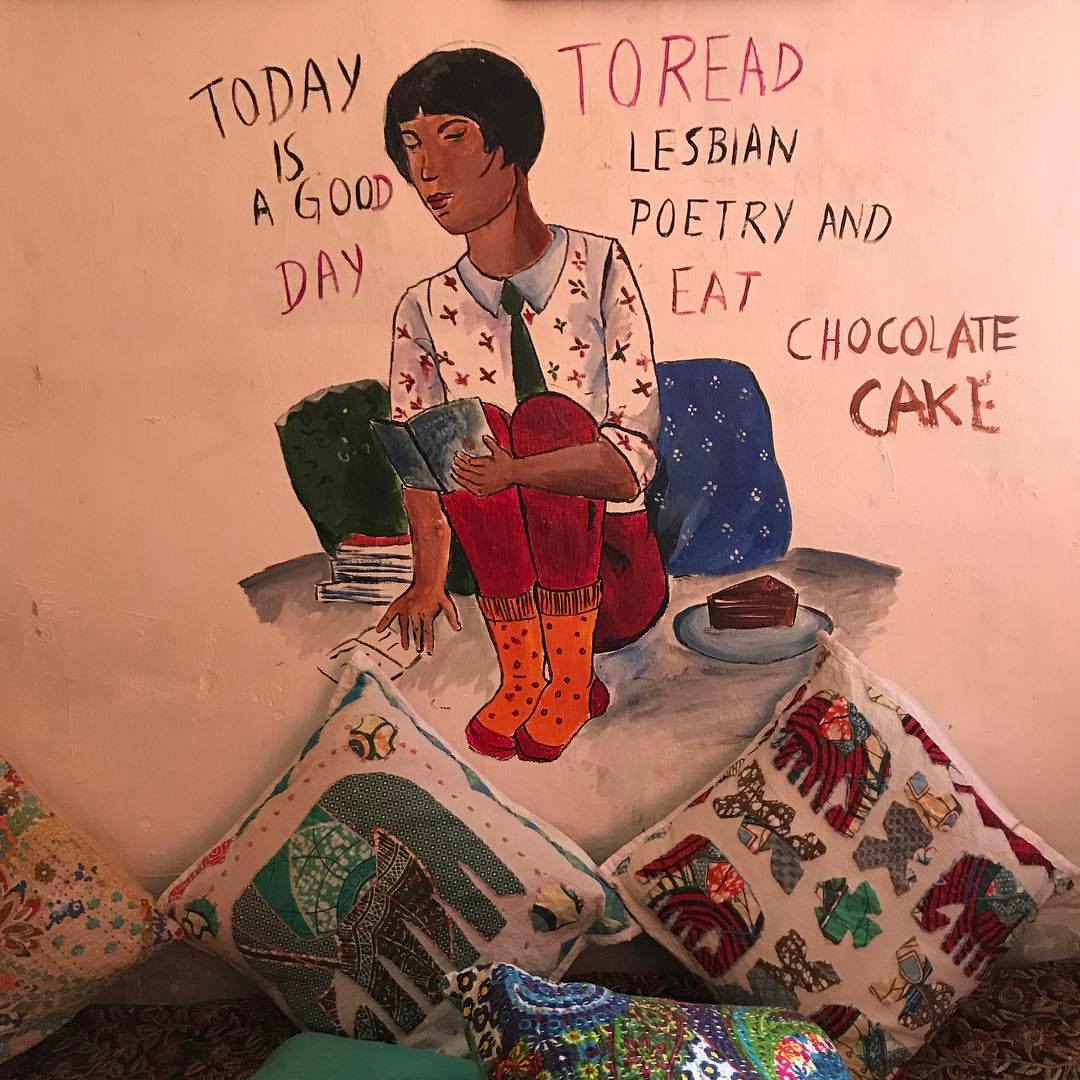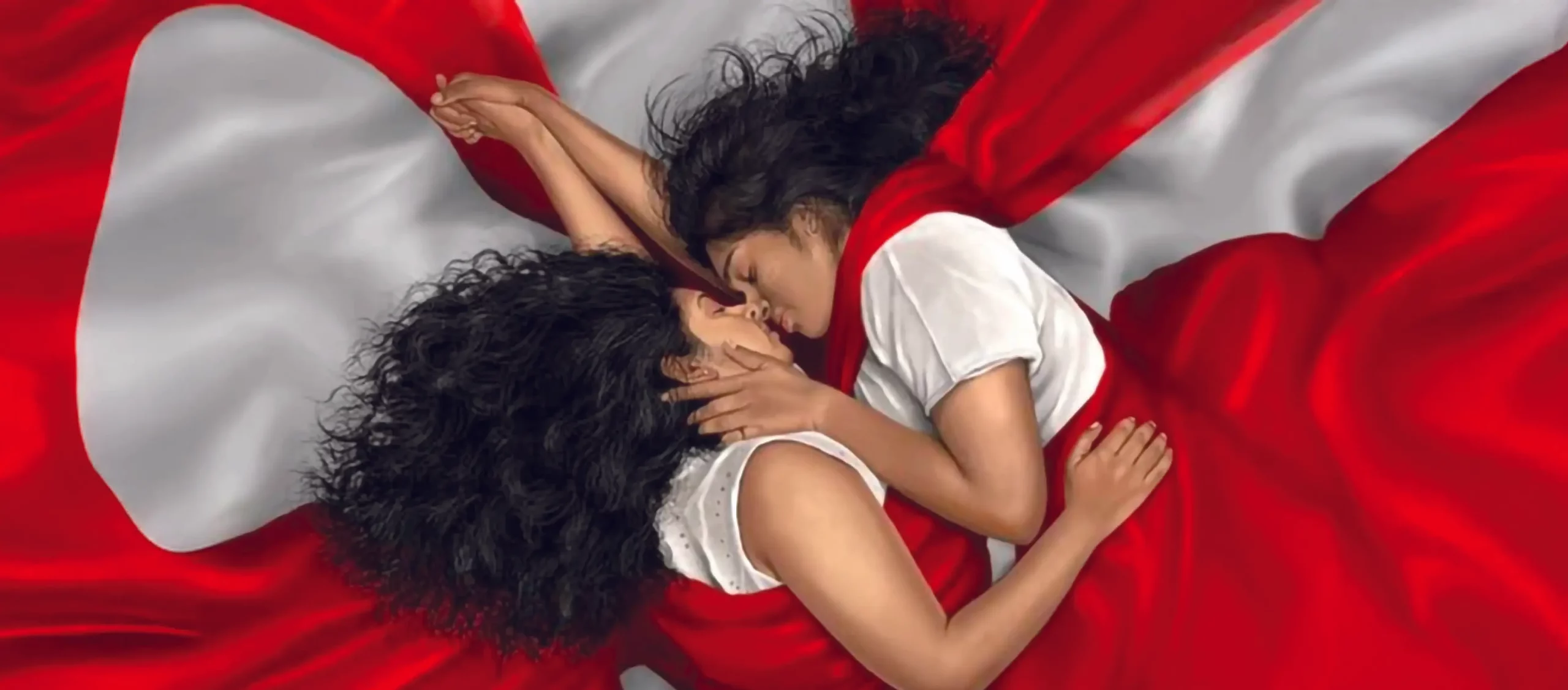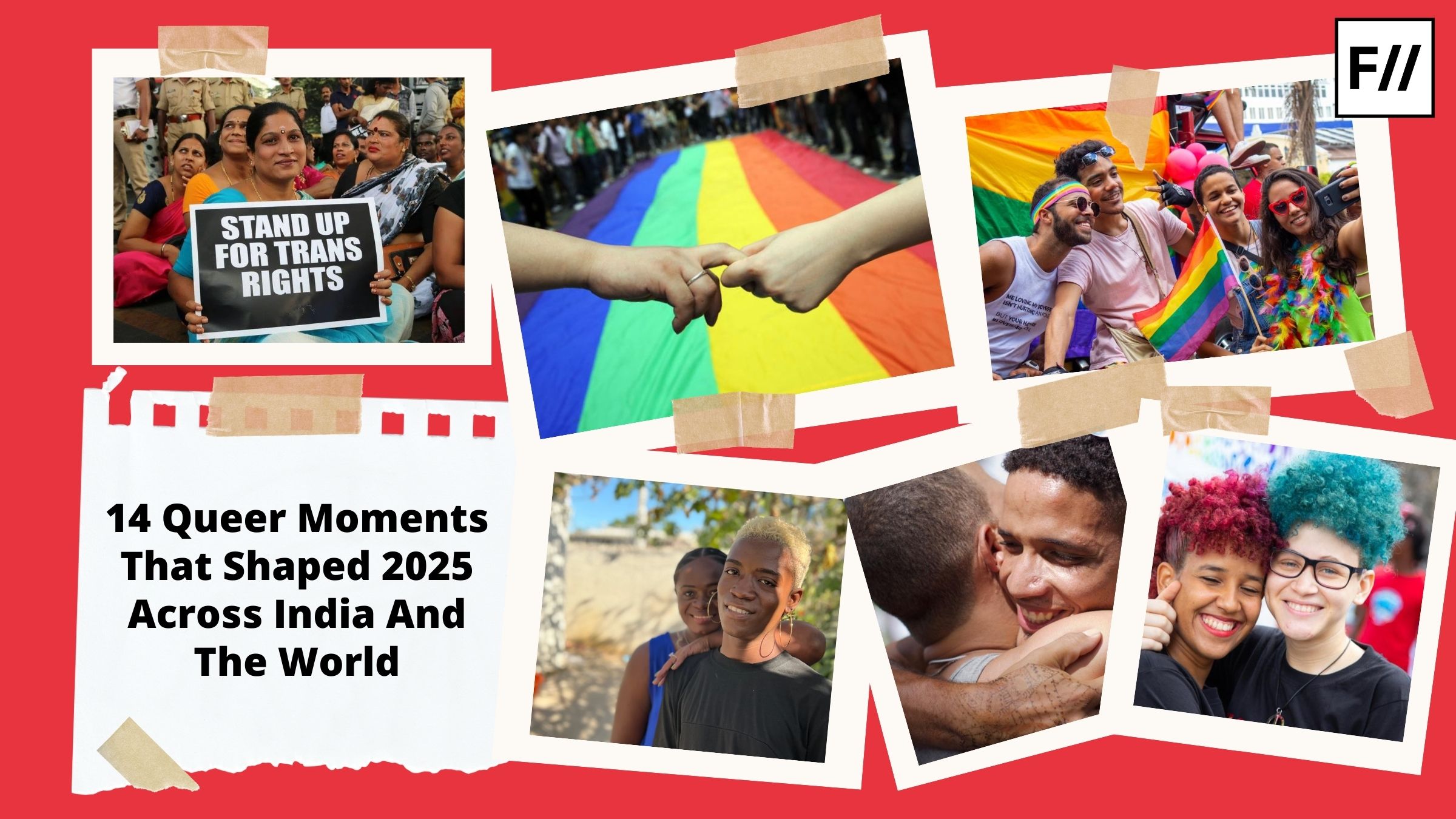Heterogeneous queer spaces are inconspicuous in India. Small, and sometimes shifting, community spaces often exist clandestinely and are largely homogenous across particular socio-economic lines. As a result, they tend to grow insular and exclusive, inhibiting access to people from varied backgrounds. Intermixing between individuals and communities from diverse milieus are rare occurrences. As its inevitable offshoot, many queer people are bereft of community space and support.
Amra Odbhut Café (Amra Odbhut meaning ‘we are queer’) is a pop-up café cum community centre for and by queer people, aims to mitigate this by offering an inclusive space that stands witness to free and creative expressions, critical dialogic exchange, important conversations and emphatic interactions between queer people and their allies in Kolkata and between those near and far. The café is revolutionary in both its vision and function.
The café, whenever it opens up for events, has people coming from Kolkata, its surrounding suburban areas as well as from several districts in rural West Bengal. However, diversity comes with its own set of challenges. One is compelled to wonder how such a space bridges the gap between the elite and the non-elite, a divide that most often creates skewed power dynamics between people and groups.
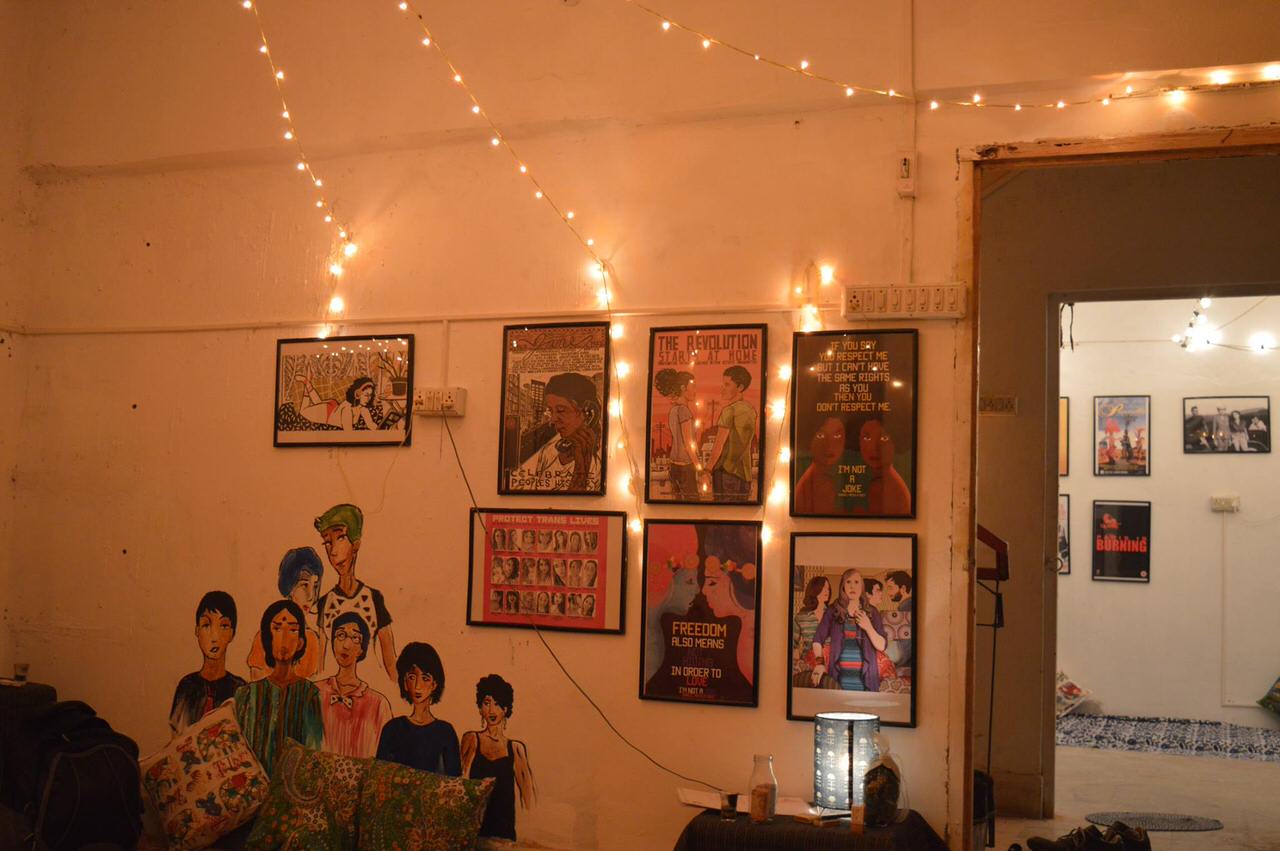
Upsana Agarwal and Nandini Moitra, who are part of a four people collective that founded and now runs Amra Odbhut, say that it “happened organically” but appear to be conscientious in how they choose to conduct themselves in the cafe/community space. Recognizing the existence of overlooked peripheries within queer communities, they acknowledge that marginalizations need to be battled through greater inclusivity and more respect for each other’s differences.
Upasana states quite matter-of-factly, “We try to not take up too much space when we have gatherings.” Being English-educated and living in an urban area, Upasana perhaps realizes some of their privileges could come in the way of forging greater community solidarity and are hence self-conscious regarding their actions.
The café has people coming from Kolkata, its surrounding suburban areas as well as from several districts in rural West Bengal.
Running a space for a marginalized community cannot be an apolitical endeavour. “After all it is a shared community space” and the founders claim only so much ownership. So far there is no segregation between groups and they hope it remains that way. Still, in its formative stages, the café/community centre aims to empower marginalized queer people, leveraging the transformative potential this space holds. And they have begun their journey towards that end slowly but surely.
Due to their involvement with a trans led organization in Kolkata, the collective has been in touch with trans people and communities for a long time. They usually take the lead and participate in good numbers during events. Trans artisans from the districts in West Bengal sell their products at the café at a reasonable price and derive maximum profits which would be inconceivable in any mainstream profit-driven enterprise.
The collective has plans to open a community store in their garage in the future. They are willing to collaborate and lend their space to NGOs working with these communities in the districts of West Bengal to have more trans and queer artists sell their work at the café.
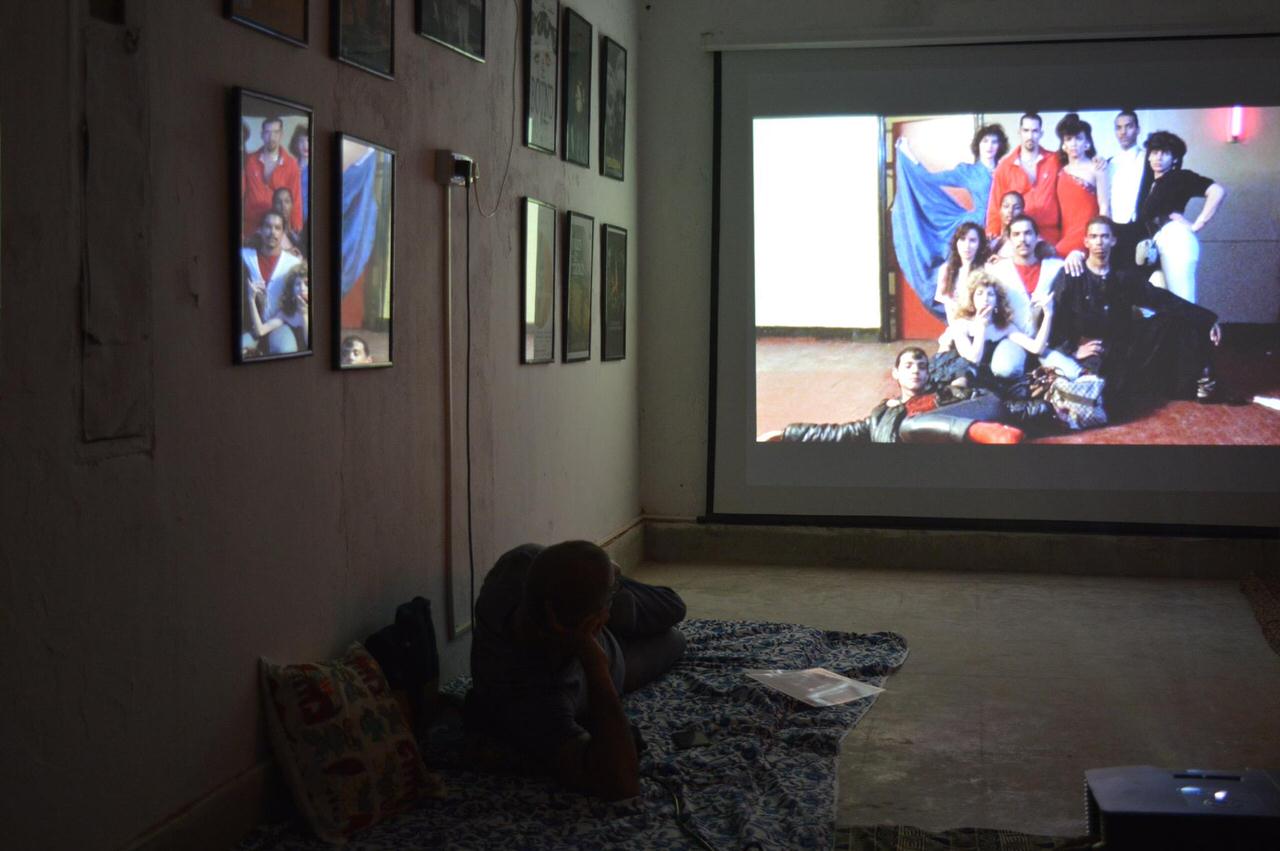
In a phobic culture, trans people are usually the worst hit; especially those who rank particularly low in the socio-economic hierarchy suffer most harshly the brunt of transphobia and transmisogyny. Taking cognizance of their dispossession, Amra Odbhut has managed to provide them with a much-needed space and the hope to carry on in their respective journeys. The collective plans to set up an emergency fund in future to help people financially in times of need as there are many queer people who are struggling to make ends meet, having lost social and/or familial support.
The café also caters to diverse interests. Upasana tells me Amra Odbhut holds different kinds of events which owing to their varying nature pull in very different crowds. It has made them realize that the community has different needs that are to be met. Some events witness the coming together of those with academic/activist orientations; some are more casual evenings of poetry reading sessions, curated performances, meet and greets, film screenings, speed dating events etc.
in its formative stages, the café/community centre aims to empower marginalized queer people leveraging the transformative potential this space holds.
These have often proved to be cathartic for many queer people who longed for a space such as this where they could be their authentic selves without the fear of social abjection. Nandini narrated the story of a queer person from another city, who had never been out to anyone and hence lacked networks of support, was overwhelmed to know of them and this space. It was perhaps for the first time that he experienced a sense of belonging. And that is exactly what the founders envisioned the space would make people feel. It is a queer utopia that was waiting to be realized.
In future, when they have the resources, Amra Odbhut hopes to invite queer artists from across the country and the globe to perform at the café, in order to create larger possibilities of transregional and transnational networks of solidarity to emerge and expand.
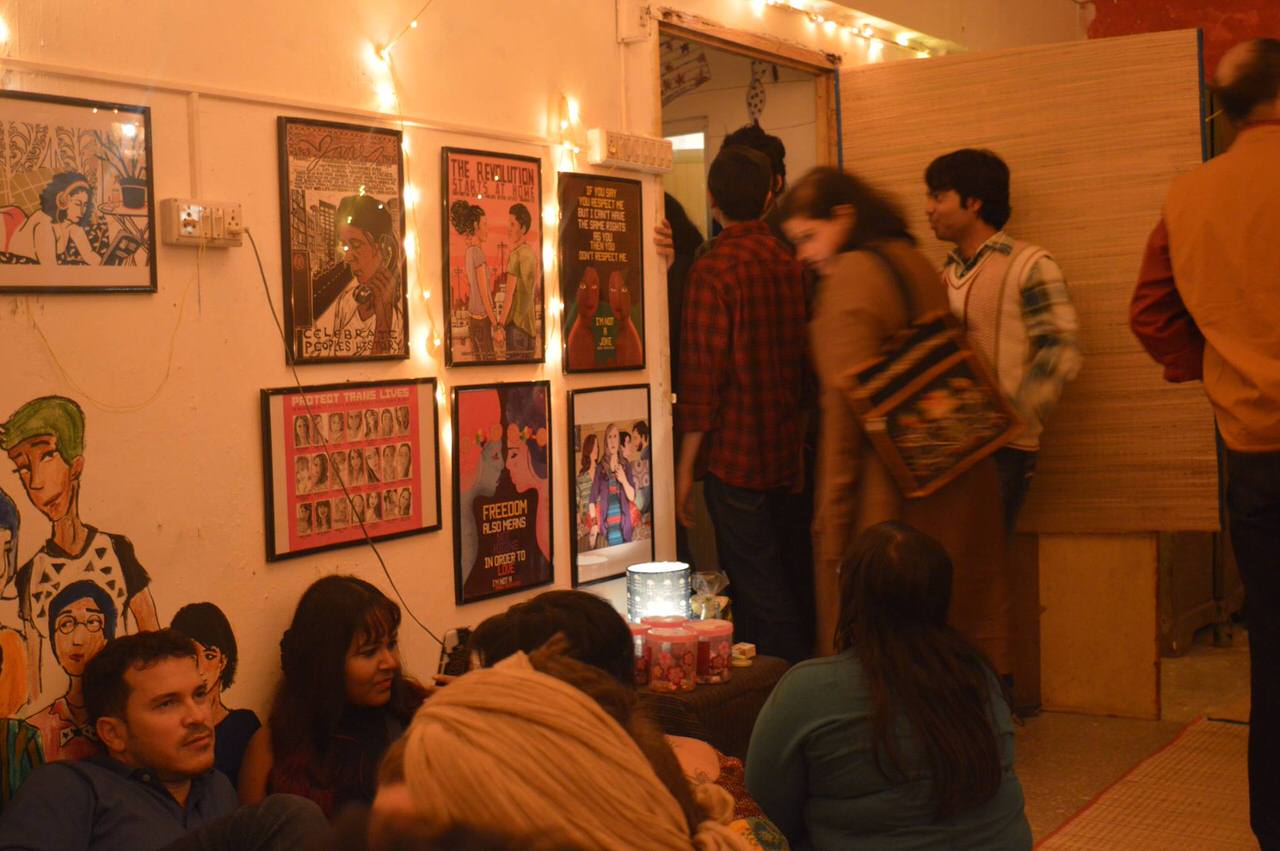
Upasana and Nandini are both illustrators and their keen sense of aesthetics mirrors that of the café. They have artworks and paintings by queer artists of colour, a lot of which were received as gifts from friends. Walls are bedecked with artwork by the likes of Gabriel Garcia Roman, a Mexican-American visual artist famous for their Queer Icon series.
It also features Amruta Patil’s ‘Extended Sisterhood’ whose debut graphic novel Kari traces the journey of a queer protagonist navigating her way through the “smog city” of Mumbai while struggling to cope with life’s oddities that severely haunt lives and bodies that refuse to conform. There are several other artworks that adorn walls of the cafe, strongly emblematic of queerness this space celebrates.
The café currently runs on personal investments by members of the collective and donations from well-wishers. Upasana tells me, “Structures have been a struggle; they make me anxious to the core.” They are motivated to subvert those rigid structures by pushing boundaries and broadening horizons of the possible and the feasible. Their journey holds promise.
Also Read: “Ditch The Sympathy, Bring Your Appetite!” Say Burn Survivors Of Writer’s Cafe
You can get in touch with the founders and/or donate to the café by contacting the collective on their Facebook page.
All images courtesy Kallol Guha
About the author(s)
Sohini Chatterjee holds an MA in International Relations from South Asian University, New Delhi. She researches and writes on gender, culture and politics. Her writing has appeared in Kindle Magazine, Cafe Dissensus Everyday, Huffington Post India, Coldnoon: Travel Poetics, The Lookout Journal etc.
